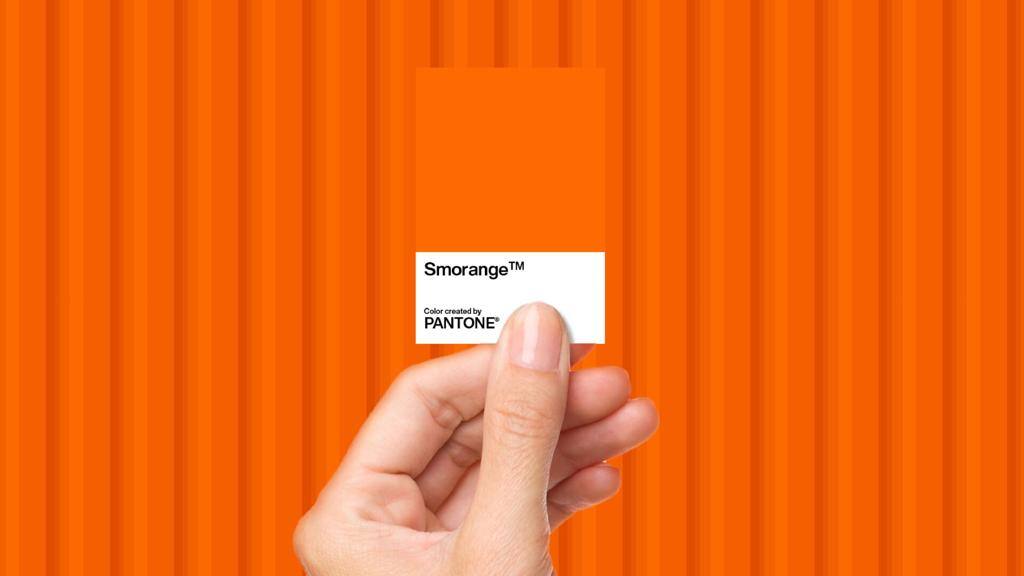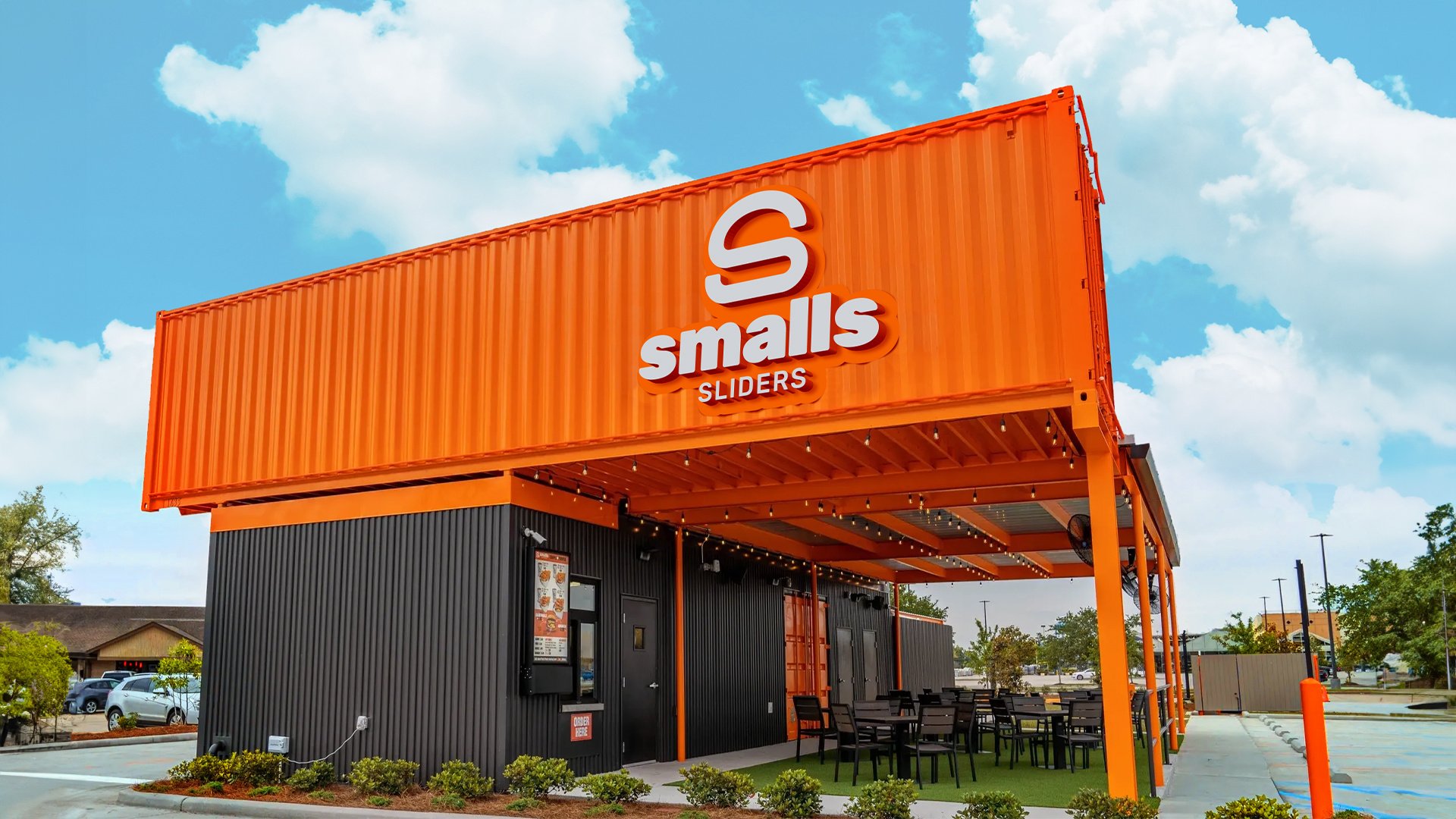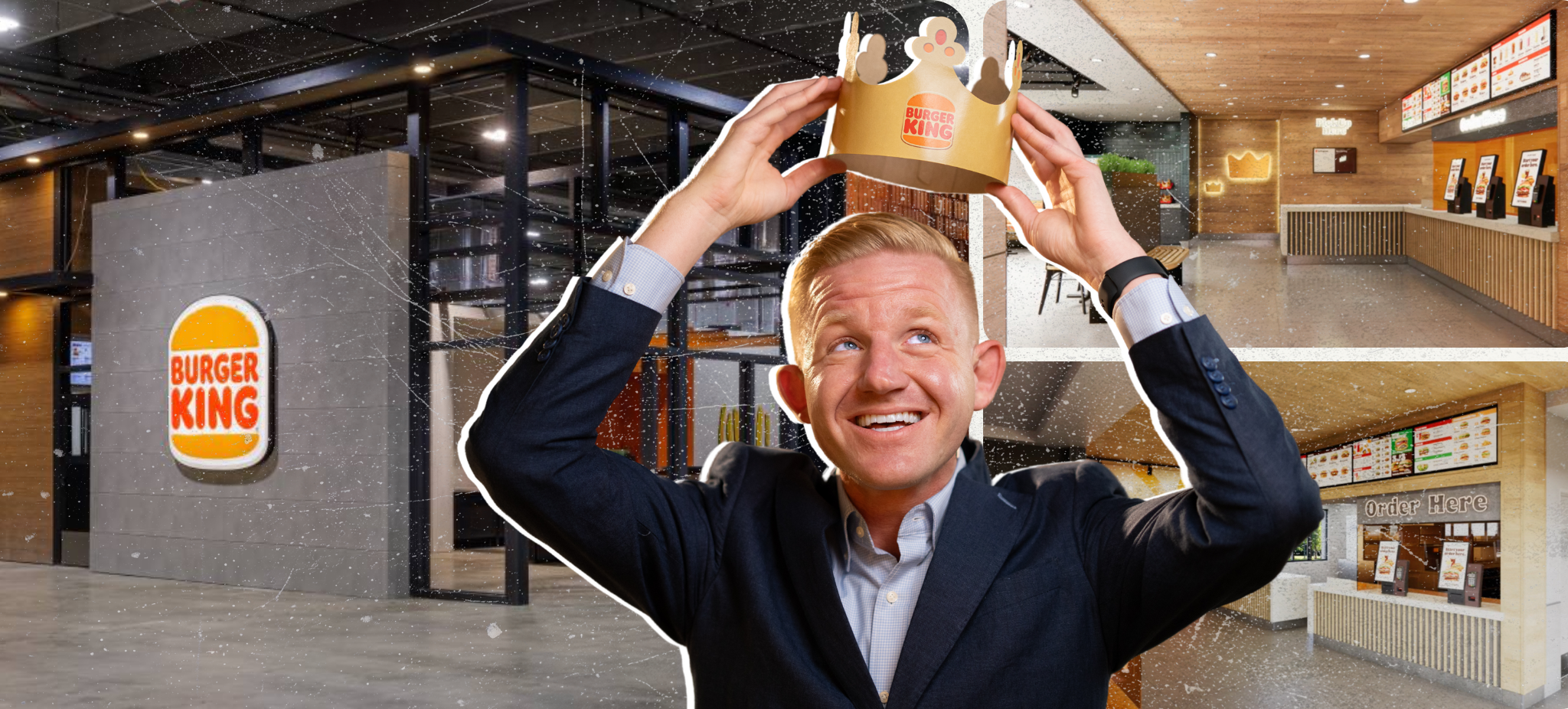For a brand named after the small size of its burgers, Smalls Sliders is growing pretty fast.
What started as a food truck on Louisiana State University (LSU) campus in 2019 now operates across 18 states with an average unit volume (AUV) of over $2 million. Their secret sauce? A simple menu and a simple restaurant design: modular shipping containers or “cans” that are built offsite and dropped in place at each new location.
Until a year ago, the company was still in its seed-level stage. But as of April 2024, it has 38 units in the pipeline with plans to open in eight more states this year and another ten next year.
“We are the brand that you may have heard about but that you certainly have not tasted,” Smalls Sliders CEO Maria Rivera said, speaking at RestaurantSpaces Spring in Los Angeles.
The Origin of the Smalls Sliders Concept
The concept behind Smalls Sliders started with Walk-On's Sports Bistreaux founder Brandon Landry, who loved cheeseburgers as a kid and thought they had untapped potential in the QSR space.
For him, cheeseburger sliders traditionally served in bars, or what Rivera calls “bro bites,” were destined for more. So he and Rivera set out to target a new demographic—kids—and serve the best cheeseburger slider.
So far, they seem to have caught onto something. The company has over 250 units under development or open across 18 states, within which over 55 percent of the territories are sold out.
“We are taking this bro bite or bar food to the national stage and hopefully shaking things up a bit along the way,” Rivera said..jpg?width=2000&height=1334&name=PUSH_POOLBOY_SLIDERS_PREVIEW-59%20(1).jpg)
Fighting Consumer Fatigue by Focusing on Simplicity
Rivera attributes the brand's growth to its focus on simplicity.
“Anything that has been written about consumers in the last five years is talking about consumer fatigue,” she said. “And consumer fatigue leads to consumer paralysis.”
Consequently, Smalls Sliders aims to be the antithesis of the many food options in the QSR industry by offering only cheeseburger sliders, waffle fries, milkshakes, and fountain drinks on its menu.
Streamlining Development with Modular “Cans”
Perhaps even more important than Smalls Sliders’ simple menu, however, is how it’s powering development with modular buildouts.
Once a site is ready, the company drops a 750-square-foot shipping container (what the chain refers to as a “can”) built with the help of six modular partners. It’s essentially turned into a new location in 27-30 minutes and operating in as little as 8-10 weeks.
The can is just big enough for the kitchen, offering a drive-thru and a 100-square-foot patio for dining. Furthermore, each location uses only half of a 0.5-acre parcel, leaving extra space for other real estate opportunities.
But it’s not all about saving space. According to Rivera, the can’s sleeker, modern look also attracts a younger audience: millennials, Gen Z, and Gen Alpha.
A look at a Smalls Sliders "can," inside and out
“Our cans do have an emotional connection with people, believe it or not. These cans are almost, in the minds of children, like a game. They’re a little Lego that drops from the sky.”
“For us, the can is not just an operational strategy. It is an evolution of how we think about restaurant spaces and the impact that those restaurant spaces have on the community.”
Of course, city regulations can impede using shipping containers for restaurants. Here, Rivera focuses on educating others on the advantages of modular construction, such as the tax and appreciation benefits. Ultimately, “The consumer is teaching us very quickly what they want,” she said. “Faster than municipalities can keep up with.”
Moving Forward with Discipline
Above all, developing a brand that keeps up with consumer tastes requires discipline. This includes integrating frictionless technology (as 92 percent of all dining decisions are made on a phone), solving for colder climates with another building prototype, and keeping the brand consistent throughout.
With consistency in mind, Smalls Sliders went as far as patenting its own shade of orange with Pantone—one of few food service brands to have done this. Now you can find “Smorange™” at your local hardware store.

At RestaurantSpaces, Rivera revealed the brand has developed and patented Smorange™
“While it might seem trivial, Pantone is a perfect example of how we’re constantly challenging ourselves to evolve,” Rivera said, using an opportunity at RestaurantSpaces to reveal Smorange ahead of the official announcement.
The company also employs a staff that’s 50 percent women, 30 percent people of color, 17 percent LGBTQIA+, and has four generations at work.
“Why is this important? Because Alpha Gen happens to be the most diverse generation in history,” Rivera said.
Despite having many directions it could go, Smalls Sliders is sticking to the simple menu and modular construction that helped propel its rapid growth in the first place.
“Keeping it simple is all about discipline,” Rivera said. “Keeping it simple in the product that you serve and discipline in the way that you stay true to the brand. We are not changing from modular. That is a tough decision.”

Posted by
Chain Restaurants Reimagined.
The Retreat to Reimagine Restaurant Development, Design + Technology.
April 12-14, 2026 | Miami, FL






-Feb-12-2026-04-59-31-5890-PM.png)

-3.png)

-3.png)

Comments